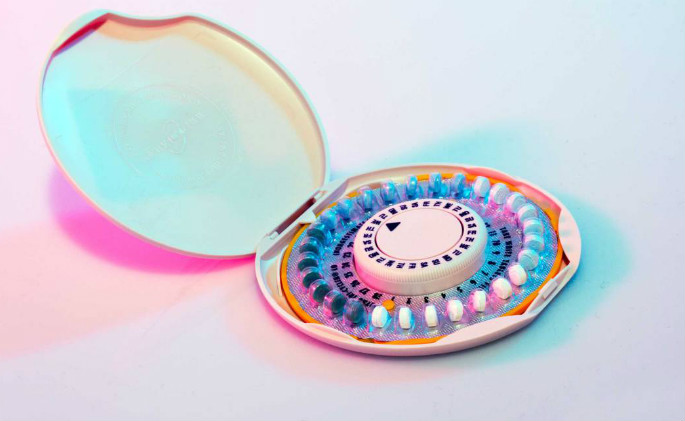women may find that their periods become lighter, irregular, more frequent or stop completely
When it comes to birth control, it is really easy to get confused. There is so much choice available for women, for instance, oral contraceptives, implants and the coil.
It can get overwhelming. But not every sexually active woman wants to have a child, so it’s vital to stay safe and protected.
DESIblitz explores how oral contraceptives actually work and the different types that you can find through the NHS and in the UK.
Oral contraceptives are a very common method that many women all over the world use, mainly because they are easily accessible and simple to use.
These birth control pills work to prevent pregnancy in many different ways. But the main one is to stop ovulation completely.
If there is no egg released during the monthly cycle, then there’s nothing for the sperm to fertilise. This makes it a really popular choice for birth control.
How do Oral Contraceptives work?

Many of the oral contraceptives contain synthetic forms of the two female hormones, oestrogen and progestin.
These work in ensuring that the woman’s natural hormone levels are stable. It also prevents oestrogen from peaking during the middle of the menstrual cycle.
Without this, the pituitary gland doesn’t release the other hormones required to cause the ovaries to release the mature eggs.
Each of the synthetic hormones do different things.
The synthetic oestrogen works to:
- Halt the production of the follicle stimulating hormone (FSH) and luteinizing hormone (LH) from the pituitary gland in order to prevent the ovulation process.
- Provide support to their uterine lining in order to stop any bleeding during the middle of the cycle.
In the case of the synthetic progestin:
- Stops the egg from releasing by preventing the pituitary gland from producing LH.
- Makes the uterine lining hostile to a fertilised egg.
- Works to also curb the ability of the sperm to fertilise the egg.
- Makes the cervical mucus thicker in order to lower sperm mobility.
Oral contraceptives usually come in packs of 21 or 28, and both of them include 21 active pills.
The extra pills in the 28 pack are placebo pills and exist to remind users to take a pill everyday and help keep them in the routine of taking it.
The seven day break from taking the birth control pills triggers a monthly bleeding which simulates the period, just without the egg. So you are still protected from becoming pregnant.
When it comes to the types of birth control pills that are actually available to women there are two: The Combination Pill which contains oestrogen and progestin and the Progestin Only Pill (POP).
The Combination Pill

The combination pill is the one that is more effective as it has the added benefits of oestrogen and is 99% effective at preventing pregnancy.
Even though this pill is used to stop women getting pregnant, it has also been used for other things, like treating painful and heavy periods, premenstrual syndrome and even endometriosis.
Although their are some cons as this pill needs to be taken every day and at the same time for 21 days, and for the remaining 7 days there will be a period type bleed.
Like all medicines, available this pill does come with some side effects, which can include headaches, tender breasts and mood swings. Although many also say that it causes weight gain, there is no medical evidence to support this.
There’s also a very small chance that it can cause more serious side effects like blood clots and cervical cancer.
The combined pill also can’t be taken by women over the age of 35 who smoke regularly or those with certain medical conditions.
Popular brands for the contraceptive pill include Yasmin and Microgynon.
Progestin Only Pill
The Progestin Only Pill is a great alternative for women who aren’t able to use pills that contain oestrogen. Whether it is due to high blood pressure, blood clots or because they are overweight.
Despite the fact that it doesn’t contain any oestrogen, if taken properly, it can be more than 99% effective at preventing pregnancy.
Like the combination pill, this needs to be taken every day and at the same time.
There are different kinds of progestin only pills:
- 3-hour progestin-only pill ~ it is vital that they are taken at the same time every day with a three hour exception time, or they will not be effective. Examples of these pills include Femulen, Micronor, Norgeston and Noriday.
- 12-hour-progestin-only-pill ~ this needs to be taken at at the same time, however the leeway is 12 hours instead. These pills tend to be desogestrel pills like Cerazette.
This alternative can also be used by women over the age of 35 who smoke, however it’s effects might be reduced if the women using it are sick and have severe diarrhoea.
Whilst using it, women may find that their periods become lighter, irregular, more frequent or stop completely.
Like the combination pill, this also has side effects which include spotty skin and tender breasts.
What to do if you’ve forgotten to take the pill

If you’ve missed a dose it is really important that you call your doctor and pharmacist for proper instructions. There should also be information on the leaflet in your pill packet on what to do when you’ve forgotten to take the pill.
There is also the risk that you might not be protected from pregnancy. For most medications, you can take the missed tablet the moment you remember. Then take the next tablet at the usual time and continue as normal.
You will also need to use a another form of birth control for the next 7 days.
If you forget to take 2 pills or more in a row:
You can do the same thing if you’ve forgotten to take two pills in a row, just take two pills on the day you remember and two on the next day. After that continue taking one a day as per usual.
However if you’ve missed two pills in the third week or have missed three or more tablets during your cycle you will have to proceed differently.
First you will need to throw out your current cycle of pills and take a new cycle. Also, for the next 7 days you will need to use an additional method of birth control.
You might not have a period that month which is normal. However, if you’ve missed more than two periods in a row, you will need to call your local health care professional.
Watch this video for more information on Oral Contraceptives:

With all this information it should be easier to pick the right birth control for your needs. Of course, before taking them you should consult your local GP.
It’s also important to remember that oral contraceptives only protect you from getting pregnant. They don’t offer any protection from STD’s.
If you want more information with regards to your reproductive health, check out the FPA website.






























































